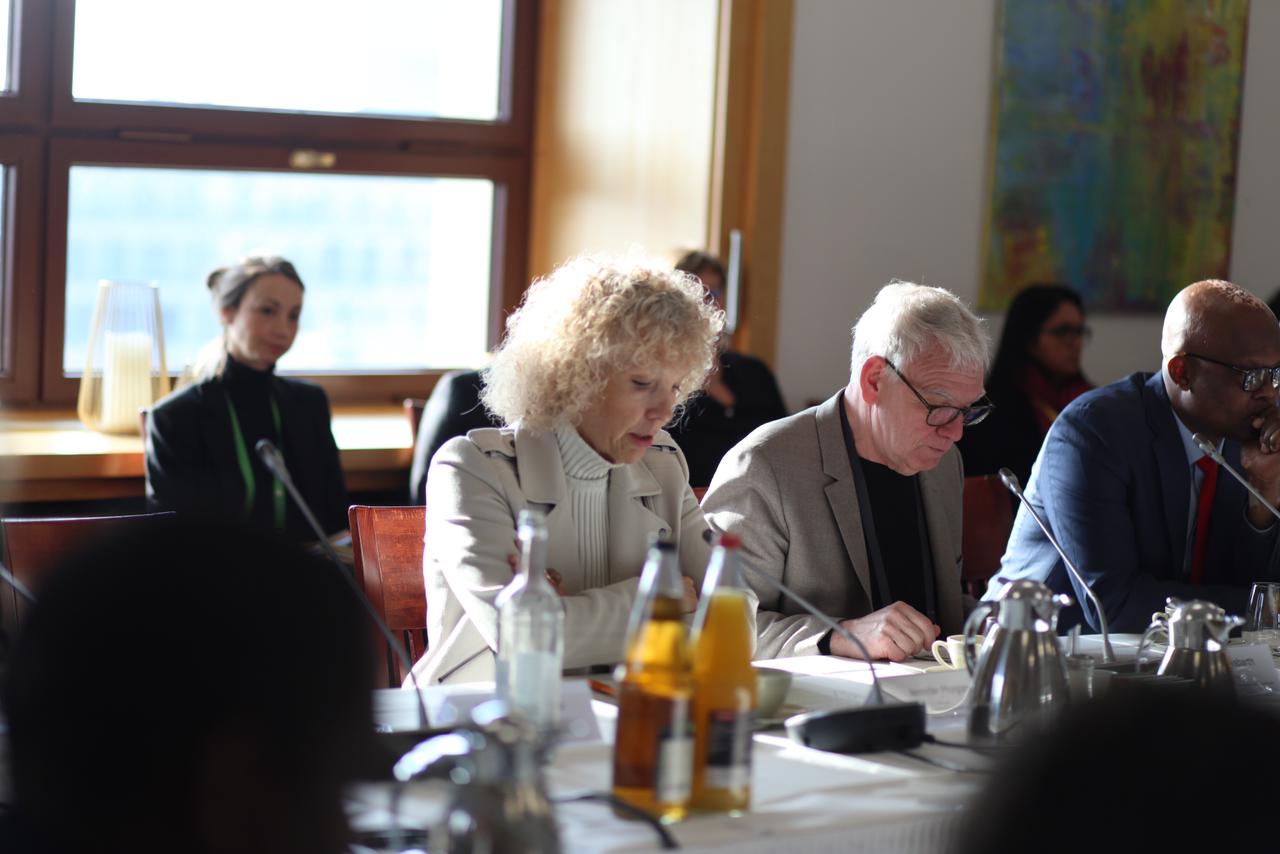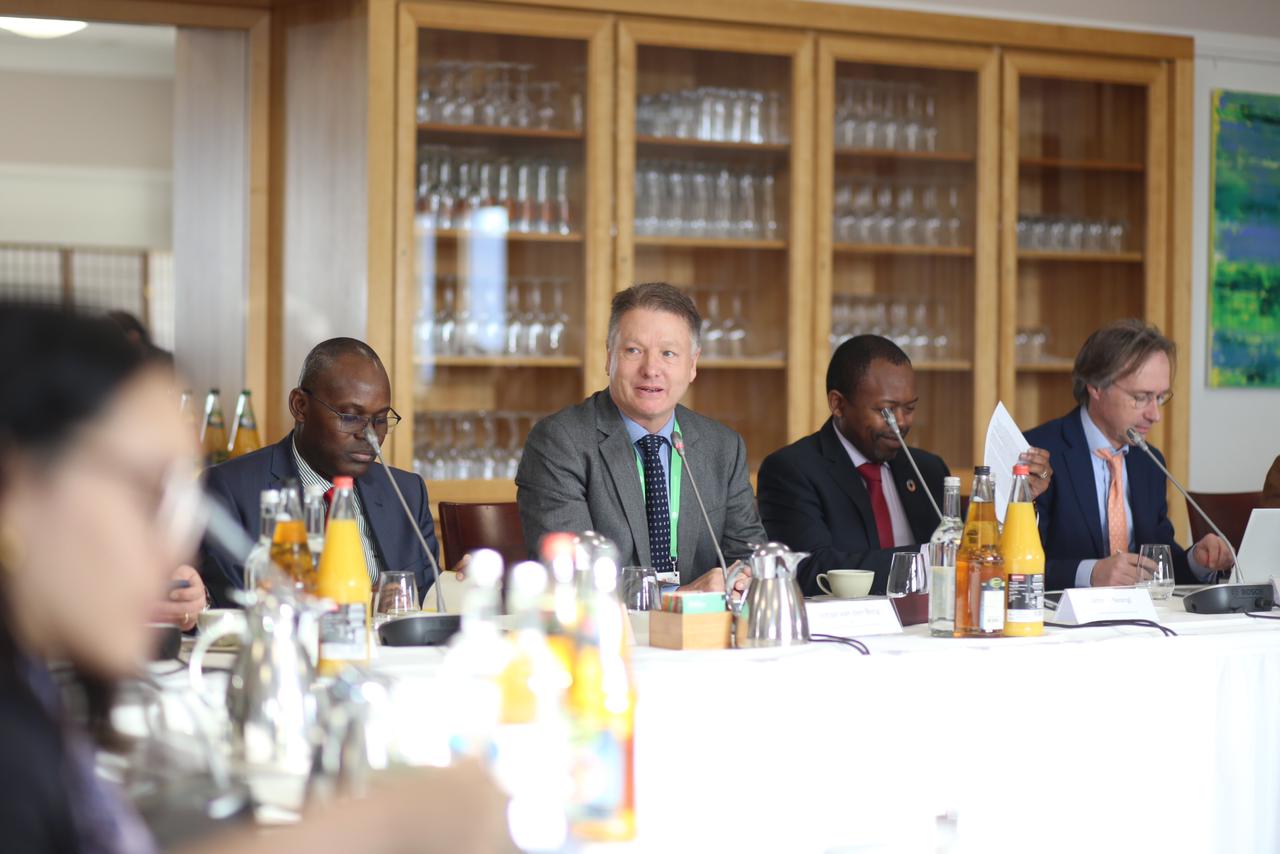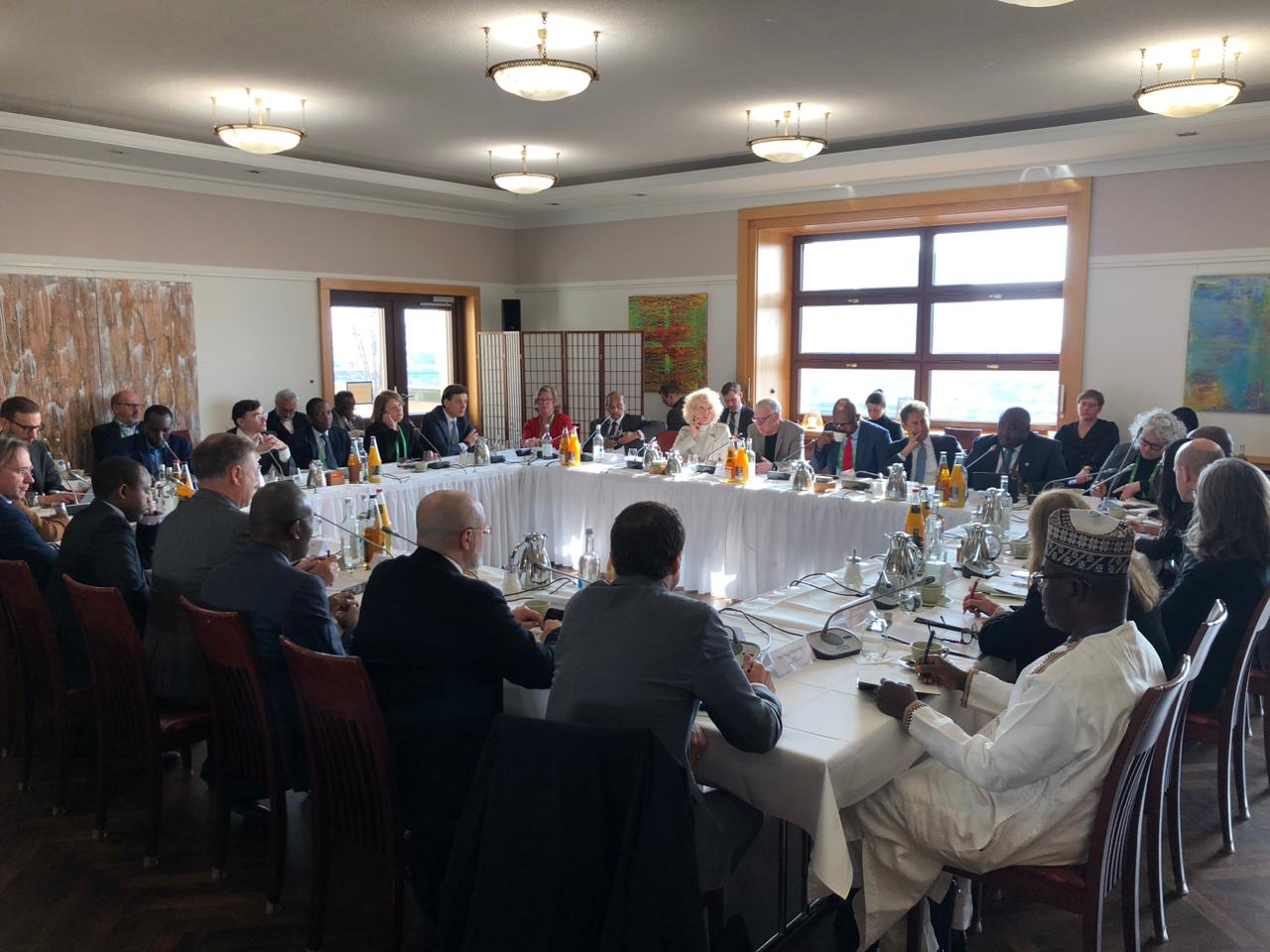- Energy and Climate
Joint Statement: Fostering Africa-Europe Energy Cooperation
- The Africa-Europe Foundation

Joint Statement on the ‘Africa-Europe High-Level Policymaker Meeting on Energy’, held at the Berlin Energy Transition Dialogue (BETD) on 20 March 2024. The meeting was hosted by the German Federal Ministry for Economic Cooperation and Development (BMZ) and convened by the Africa-Europe Foundation (AEF) and the Africa-EU Energy Partnership (AEEP).
Africa and Europe are important energy partners. Especially in the context of the upcoming AU Energy Summit, COP29, the revision of NDCs, and the 7th AU-EU Summit in 2025, trust and collaboration between both continents are essential.
During the Berlin Energy Transition Dialogue on 20 March 2024 in Berlin, African and European policymakers met with representatives from the private sector and NGOs for a high-level breakfast to discuss the Africa-Europe energy coordination.
Participants from the two continents engaged in dialogue under Chatham House Rules and strategised on the possible translation of the latest adopted commitments from the Africa Climate Summit (ACS) and COP28 into action. These ambitious goals include a tripling of the renewable energy capacity installed and a doubling of energy efficiency by 2030. The discussion was built on the first AEF-AEEP High-Level Policymaker Meeting on Energy during the inaugural Africa Climate Summit in Nairobi in 2023, during which trustful dialogue was identified as essential for a successful energy partnership.
Download Final Joint Statement - Africa-Europe Policymaker Meeting on Energy.
Representation
Participants attending the March 2024 Africa-Europe High-Level Policymaker Meeting on Energy included decision-makers from Germany, Netherlands, Italy, Mozambique, DRC, Kenya, Rwanda, South Africa, Nigeria, and representatives from several public and private organisations, including the African Union Development Agency (AUDA-NEPAD), the German Development Agency (GIZ), the International Renewable Energy Agency (IRENA), the Renewable Energy Policy Network for the 21st Century (REN21) and the Global Women’s Network for the Energy Transition (GWNET). This setting allowed for all invitees to share their perspectives on Africa’s and Europe’s possibilities to engage in the intersecting areas of energy and climate.



Outcome
With two African flagship initiatives – the Continental Power System Master Plan (CMP) and the Africa Single Electricity Market (AfSEM), the AU and its member states show that there is a clear political will and a clear plan to deliver universal access to sustainable energy by 2040. The AfSEM and CMP aim to add 300GW and 760GW of renewable energy capacity by 2030 and 2040, respectively, to the African continent. It was noted that these targets would increase renewable energy installed in Africa five-fold by 2030 and twelve-fold by 2040.
Thus, the AU’s energy masterplan, as already adopted by the energy ministers of the member states, is fully compatible with the most recent climate goals emanating from COP28 and the African Climate Summit. Furthermore, it was noted that the opportunity for a green transition lies in promoting socio-economic development, education, green industrialisation, sustainable value chains, and trade.
Given the current situation of renewable energy capacity development on both continents respectively, and the formidable challenge that raises the global aim of tripling capacity by 2030, especially where much renewable energy already exists, there is a clear value in the bi-continental partnership to ensure that the global goal is contributed to jointly in partnership, leveraging the strengths of each continent.
Regarding the bi-continental partnership, it became clear that the CMP and AfSEM (produced with significant EU assistance) are critical cornerstones to Africa’s energy transformation. Given their compatibility with reaching the global climate ambitions, Europe was invited to render further support in their roll-out. At the same time, the existing intercontinental partnership towards a just and sustainable global energy transition was highlighted.
The Africa-EU Green Energy Initiative (AEGEI) forms an essential framework for the African-European cooperation and focuses on the triad of technology, financing, and consultation. Therefore, the EU and its Member States have leveraged their Team Europe approach to secure up to €20.5bn from 2021-2027 - including support for the CMP and AfSEM.
“Therefore, the EU and its Member States have leveraged their Team Europe approach to secure up to €20.5bn from 2021-2027 - including support for the CMP and AfSEM. ”
The meeting also highlighted the ‘Accelerated Partnership for Renewables in Africa’ (APRA) initiative, launched at ACS, as a promising vehicle for accelerated and deepened partnership. The initiative was complimented for its transformative approach involving technology transfer, skills and capacity development, employment opportunities, and private sector involvement. APRA is built on tailored country approaches to support energy transition as countries gear-up towards achieving COP28 renewable and energy efficiency global goals. The extensive contributions by the private sector to the discussion underlined the value of this ecosystem approach.
The participants recognised the urgency of given realities on the ground, with 690Mn of the African population lacking access to electricity and 900Mn people on the African continent still awaiting access to clean cooking solutions. In this context, investments in infrastructure, especially transmission, were identified as a necessary priority area of action, alongside technical assistance and policy support.
Further, numerous participants stressed the importance of addressing the perceived risks and bringing down the cost of capital to mobilise private investment. Regulatory frameworks, innovative guarantee mechanisms, off-take contracts, and local currency financing were suggested as possible tools. Green bonds and climate finance were mentioned as additional sources of funding.
The participants generally agreed that energy transition should be considered through an integrated approach. Renewable energy serves as an enabler for energy access and essential cornerstone of green economic transformation, which will foster local added value and job creation on the African continent, coupled with increased energy security.
In summary, it was concluded that Africa has the potential to become the next global climate hub. Now is a time to embrace commercial and competitive opportunities. The continent has all the endowments to make this happen, including the renewable energy potential, a young workforce, and profound natural assets. Africa and Europe, given their inter-dependencies and shared goals, have a unique window of opportunity to work jointly to achieve a just and sustainable global energy transformation.
“The continent has all the endowments to make this happen, including the renewable energy potential, a young workforce, and profound natural assets.”
Participants in the meeting included
• Rana Adib, Executive Secretary, REN21
• Amine Idriss Adoum, Director of Infrastructure, Trade, and Industrialization, AUDA NEPAD
• Joanne Bate, Chief Operations Officer, Industrial Development Corporation of South Africa
• Francesco Corvaro, Italian Special Envoy for Climate Change of the Italian Government, Italian Republic
• Morgan Després, Executive Director for Climate Finance, Economy and Nature Programmes, European Climate Foundation (ECF)
• Bruce Douglas, CEO, Global Renewables Alliance
• Jochen Flasbarth, State Secretary in the Federal Ministry for Economic Cooperation and Development, Federal Republic of Germany
• Máté Heisz, Director of Global Affairs, Solar Power Europe
• Heike Henn, Director Climate, Energy, Environment, Ministry for Economic Cooperation and Development, Federal Republic of Germany
• Ingrid Hoven, Managing Director, Deutsche Gesellschaft für Internationale Zusammenarbeit (GIZ)
• Maesela Kekana, Deputy Director General: Climate Change and Air Quality Management, Republic of South Africa
• Philipp Knill, Director Africa II, Ministry for Economic Cooperation and Development, Federal Republic of Germany
• Francesco La Camera, Director-General, International Renewable Energy Agency (IRENA)
• Joyce Lee, Head of Policy, Global Wind Energy Council (GWEC)
• Christine Lins, Executive Director, Global Women’s Network for Energy Transition (GWNET)
• Mahmuda Mamman, Permanent Secretary of Power, Federal Ministry of Power, Federal Republic of Nigeria
• Ajay Mathur, Director-General, International Solar Alliance (ISA)
• Jennifer Morgan, State Secretary and Special Envoy for International Climate Action, Ministry of Foreign Affairs, Federal Republic of Germany
• Serge Wilson Muhizi, CEO, EPD – Energy Private Developers
• Cyprien Musimar, Director General, ANSER – National Agency for Electrification and Energy Services in rural and peri-urban areas, Democratic Republic of the Congo
• Damião Victor Namuera, Head of the Renewable Energy Department, Ministry of Mineral Resources and Energy, National Energy Directorate, Republic of Mozambique
• Roland Siller, Chairman of the Management Board, DEG
• Patrick Tonui, Head of Policy and Regional Strategy, Global Off-Grid Lighting Association
• Alex Wachira, Principal Secretary of the Ministry of Energy and Petroleum, Republic of Kenya
• Frederik Wisselink, Energy Envoy, Kingdom of the Netherlands
• James Mwangi, Founder of the Climate Action Platform for Africa (CAP-A)
• Johan van den Berg, Head of the Secretariat at the Africa-EU Energy Partnership
• Raphaël Danglade, Lead Portfolio Manager for Climate and Development, Africa-Europe Foundation